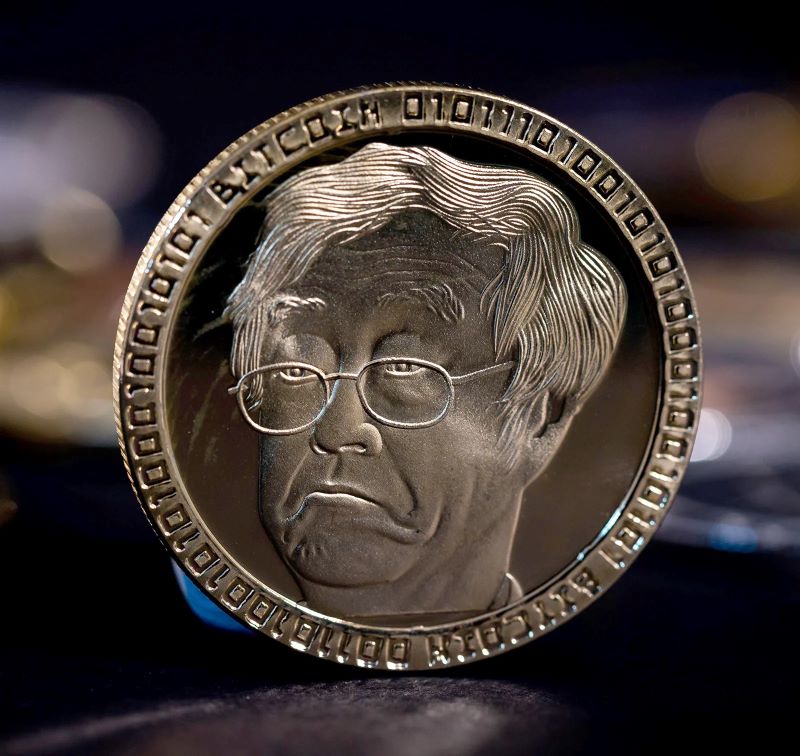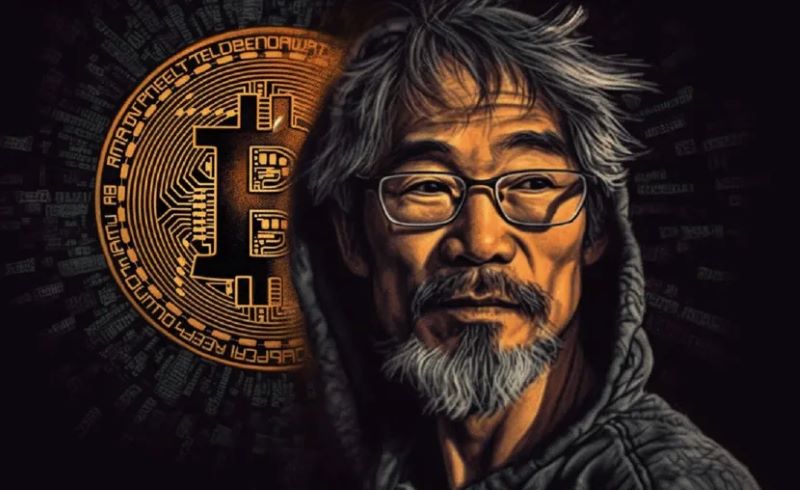Who founded Bitcoin is a question that continues to intrigue and puzzle the cryptocurrency community. As we delve deeper into the enigmatic story behind Bitcoin’s creation, we uncover not only the technological innovations it introduced but also the enduring mystery surrounding its founder.
Who founded bitcoin?
Bitcoin is the world’s first cryptocurrency, released in 2009. The question “Who founded Bitcoin?” remains one of the biggest mysteries in the crypto world. The creator of Bitcoin is known by the pseudonym Satoshi Nakamoto. However, to this day, the true identity of Satoshi Nakamoto remains unknown.

Origins of Bitcoin: A Response to Financial Crisis
Bitcoin was created in the wake of the 2008 global financial crisis. Satoshi Nakamoto published a research paper (whitepaper) titled “Bitcoin: A Peer-to-Peer Electronic Cash System,” which described how Bitcoin and blockchain technology work. The emergence of Bitcoin was not only an innovation in the financial sector but also marked the beginning of the cryptocurrency movement.
The Identity of Satoshi Nakamoto
Although many people have been suspected of being Satoshi Nakamoto, from programmers to renowned researchers, no one has been able to confirm their true identity. This further adds to the mystery and allure of Bitcoin. Some believe that Satoshi Nakamoto could be an individual, while others speculate that it might be a group of people. The question “Who founded Bitcoin?” continues to intrigue and fascinate the crypto community.
The Impact of Satoshi Nakamoto’s Creation
Satoshi Nakamoto’s creation brought about a new financial system, enabling direct transactions between individuals without intermediaries, ushering in a new era for global currency and finance. Bitcoin has created a foundation for thousands of other cryptocurrencies and has become an integral part of the modern financial market.
Despite the uncertainty surrounding who founded Bitcoin, its impact on the fields of finance and technology is undeniable. Since its inception, Bitcoin has changed how people perceive money, investment, and value.
Who is the owner of bitcoin?
Satoshi Nakamoto, the founder and inventor of Bitcoin, is believed to be the one who mined the first Bitcoins and owns a significant amount of this cryptocurrency. Based on blockchain analysis, it is estimated that Satoshi Nakamoto might possess around 1 million Bitcoins, worth billions of USD. However, since creating Bitcoin, Nakamoto has never sold or used any of these Bitcoins, and the true identity of the person (or group) behind this name remains a mystery. This raises the intriguing question, “Who is the owner of bitcoin?”

Miners and Bitcoin Holders
Bitcoin is generated through a process called “mining.” Miners utilize the computing power of their machines to solve complex mathematical problems, and upon success, they are rewarded with newly minted Bitcoins. Additionally, Bitcoin can be bought and sold on cryptocurrency exchanges. Therefore, anyone who can buy or mine Bitcoin can own it. This open accessibility is a key aspect of answering the question, “Who is the owner of bitcoin?”
The Decentralized Nature of Bitcoin
The decentralized nature of Bitcoin means that there is no single owner controlling the entire Bitcoin network. Instead, this network operates based on the participation of millions of users and miners worldwide. Each user can hold and transact Bitcoin in their own way without requiring permission or intervention from anyone else.
Bitcoin does not have a single “owner” but is the asset of the community of users and miners worldwide. So, while the question “Who is the owner of bitcoin?” may arise, the answer lies in the collective ownership of the decentralized network and its community.
The Future of Bitcoin and its Role in the Global Economy
Bitcoin, since its inception in 2009, has evolved from a technological phenomenon to a valuable financial asset. It is now more widely accepted by institutional investors, investment funds, and even large corporations. The future of Bitcoin may be intertwined with its adoption as an official asset in the portfolios of pension funds, banks, and major financial institutions, not only as a medium of exchange but also as a long-term store of value, similar to gold.
But who really controls this revolutionary technology? The question “Who is the owner of bitcoin?” highlights its decentralized nature, which will likely play a crucial role in its future.
Decentralization and the Role in Decentralized Finance (DeFi)
Bitcoin can continue to play a foundational role in the decentralized finance (DeFi) ecosystem, a growing trend. DeFi systems allow users to lend, borrow, and trade without relying on traditional financial intermediaries like banks.
Due to the decentralization and security of blockchain, Bitcoin can serve as a base or collateral asset in various financial applications, enhancing global financial access without depending on traditional banking infrastructure.

Regulatory Policies and Legal Challenges
The future of Bitcoin will also depend on the development of global regulatory policies. Many countries are currently seeking to create legal frameworks to control the use of Bitcoin and other cryptocurrencies to prevent risks related to fraud, money laundering, and terrorist financing.
However, some countries remain apprehensive about legalizing cryptocurrencies due to the high volatility of this market. The development of a reasonable and technology-friendly regulatory system can help Bitcoin become an integral part of the global economy.
Bitcoin and the Potential to Replace Traditional Currencies

One of the biggest questions about the future of Bitcoin is whether it can replace traditional currencies.
Currently, Bitcoin is not yet widely accepted as an official means of payment in everyday life due to its volatility. However, with the development of technology and blockchain infrastructure, Bitcoin-based payment solutions like the Lightning Network can address the issues of speed and transaction costs, thereby bringing Bitcoin closer to becoming a common payment method.
Competition with Central Bank Digital Currencies (CBDCs)
The emergence of central bank digital currencies (CBDCs) could be a significant factor influencing the future of Bitcoin. Many countries are researching and implementing their own digital currencies as an alternative to Bitcoin.
However, Bitcoin retains its advantages due to its decentralized nature, free from the control of any organization. If CBDCs become widely used, Bitcoin can still serve as an independent store of value, providing users with an alternative to protect their assets against inflation risks.
Expanding Role in International Trade and the Digital Economy
Bitcoin has the potential to play an increasingly important role in international trade, especially in regions with underdeveloped banking systems or in countries with unstable economic conditions. Bitcoin can help businesses and individuals conduct cross-border transactions quickly and cost-effectively.
Furthermore, with the development of the digital economy, Bitcoin can become a currency for trading digital assets and online services, promoting e-commerce and new economic models.
Maturity of Bitcoin as a Financial Asset
Bitcoin has come a long way since its creation, and its future is likely tied to its increasing maturity as a financial asset. Widespread acceptance by institutions and the potential for it to become a staple in investment portfolios worldwide will solidify its position in the global economy. The question “Who is the owner of bitcoin?” will likely become less relevant as its adoption grows.
Bitcoin has and continues to have a profound impact on the global economy and will continue to play a crucial role in the future. Despite the challenges related to legality and widespread adoption, Bitcoin’s potential is enormous in changing how we manage finances, conduct transactions, and store value. If managed appropriately, Bitcoin can become an indispensable part of the global financial system, especially during the transition to a digital and decentralized economy.
The question “Who founded Bitcoin?” remains one of the most enduring mysteries in the world of cryptocurrency. Bitcoin, as the first cryptocurrency, has paved the way for a decentralized and innovative financial future. For more insights into the fascinating world of Bitcoin and blockchain technology, stay tuned to Blockchain Global Network, your trusted source for cryptocurrency news and analysis.

RELATED POSTS
Examples of Secure Blockchain Implementations: Unveiling Industry Innovations
Examples of secure blockchain implementations...
Pi Network Officially Listed on OKX – Price Fluctuations and Forecast
Pi Network has officially been...
Physical Bitcoin: The truth about the top digital currency
Have you ever heard of...
Elastic Chain: The future of Layer-2 Blockchain networks
Elastic Chain ushers in a...
Why did Gama fail Crypto?
“Why did Gama fail crypto?”...
Saitama Coin: A deflationary Token with a promising future
Saitama Coin (SAITAMA) is a...
Greg Maxwell: Influence in the Cryptocurrency world
Greg Maxwell is one of...
BoxBet Airdrop – Your Ultimate Guide to Earning BXBT Tokens
The BoxBet Airdrop is making...
How does DALLE work? A Comprehensive guide to AI Art generation
How does DALLE work? This...
What is rate limit exceeded on twitter?
What is rate limit exceeded...
Future of On-Chain Code Audits: Revolutionizing Collaborative Cybersecurity
Enhance blockchain security with on-chain...
What is a decentralized exchange?
What is a decentralized exchange?...
Dunes Airdrop – Optimizing liquidity from resting assets
Dunes Airdrop brings a solution...
Infrared Finance: Leading PoL Staking on Berachain
Infrared Finance has emerged as...
Towns Airdrop – Expert Experience in Mining
To optimize benefits from the...
Is Bitcoin Going to Crash? – 3 Current Market Dynamics
Wondering, “Is Bitcoin Going to...